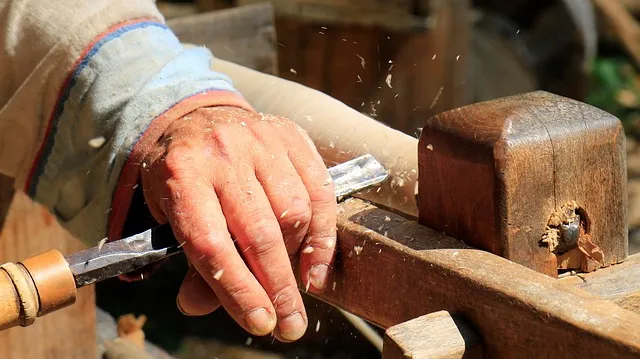
For amateur woodworking hobbyists, taking a community college class in woodworking can provide numerous benefits and valuable skills that can enhance your hobby. These classes offer structured learning environments with experienced instructors who can teach you the fundamentals of woodworking techniques and safety practices.
Our list of woodworkers and basic carpentry courses will be sure to get you excited. Feel free to sign up to one of these beginner woodworking courses in Lamai Beach today. If you’re looking for the best carpenters and beginner woodworking classes in Ko Lanta you’ve come to the right place. Feel free to sign up to one of these beginner woodworking courses in Ko Lanta today. If you’re looking for the best carpenters and beginner woodworking classes in Chiang Khong you’ve come to the right place.
Red Rocks Community College’s Fine Woodworking department offers certificates and a degree to fit your goals, whether pursuing a career or fine-tuning your expertise. Students will explore design possibilities through hand-drawings, model-making, and digital software. The student, through studio experience, will utilize these concepts to design and create a digital 3-D rendering of furniture leading to a realized experimental piece.
Benefits of taking a community college class in woodworking:
- Hands-on experience: Community college classes typically involve practical, hands-on projects that allow you to apply the skills you learn in class. This can help you gain confidence in your woodworking abilities and improve your craftsmanship.
- Access to equipment: Community colleges often have well-equipped woodworking labs with tools and machinery that may be too expensive for hobbyists to purchase on their own. By taking a class, you can access and use these resources under the guidance of knowledgeable instructors.
- Networking opportunities: Community college classes can also provide networking opportunities with other woodworking enthusiasts. You can connect with like-minded individuals, share tips and techniques, and potentially collaborate on future projects.
This studio course focuses on the creation of well-crafted functional and sculptural carved wood objects. Students explore low and high relief, 3-dimensional forms, figurative and decorative subjects, tool use and care to develop their carving skills and creative expression. The Fine Woodworking Program works in interdisciplinary ways with the Business Department to enrich your educational experience. You will also have opportunities to interact with local woodworking businesses through on-site company tours and speaking events by working professionals and industry leaders.
These skills are rewarding and versatile ‘ with a satisfyingly creative punch. Explore this blog to determine if woodworking and metalworking courses at PCC are right for you. We ask that our students be dedicated to mastering the technical skills of traditional and contemporary fine woodworking. This studio course focuses on structural, functional, and sculptural properties of wood, together with the traditional studio techniques of professional woodworkers.
As people learned to smelt metal alloys, civilization moved into a new era of tech, called the Bronze Age. This historical period began as early as 3,300 B.C., though worldwide adoption lasted up until the Iron Age that began around 1200 B.C. If you have a passion for it and you have always wanted to start your own business, it turns out you can do so… The following occupational information is provided by and is subject to change.
Laney College’s mission is to empower our community and to promote student success and social justice. We welcome and embrace Laney’s diversity through serving the community’s needs by providing certificates, degrees, transfer pathways, career education, and lifelong learning opportunities. Instructors structure classes to include demonstrations of techniques followed by class time for students to practice them hands-on. Students translate these new skills into beautiful finished projects by the end of each semester. The Fine Woodworking Program hosts an exhibition of student works at the end of each fall and spring semester.
Frequently Asked Questions about taking a community college class in woodworking:
- Do I need prior woodworking experience to enroll in a class?
- What types of projects can I expect to work on in a woodworking class?
- Will I need to purchase my own materials?
No, most community college woodworking classes are designed for beginners and cover basic woodworking skills.
Projects can range from simple items like cutting boards and picture frames to more complex pieces like furniture or cabinetry.
Some classes may provide materials included in the tuition fee, while others may require you to purchase your own wood and supplies.




